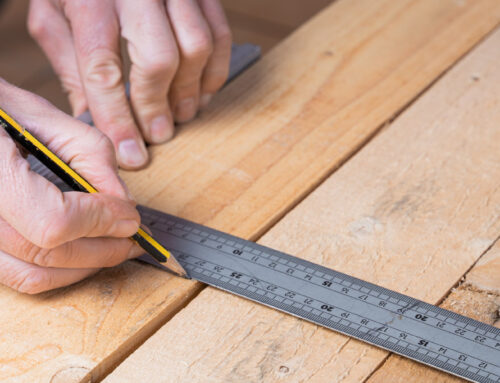Wholesale flooring purchases can save 20-40% compared to retail, but smart buyers know success depends on evaluating supplier reputation, product quality, certifications, and logistics. Always inspect samples, verify warranties, calculate precise quantities with waste allowance, and check certifications like FloorScore before committing to bulk orders.
Bulk wholesale flooring purchases can save you 20-40% compared to retail prices, but only when you evaluate suppliers, products, and logistics correctly. Smart buyers know the difference between genuine savings and costly mistakes comes down to proper preparation.
Many contractors learn the hard way that wholesale purchasing involves more than finding the lowest price per square foot. Missing quality certifications, underestimating storage requirements, or choosing unreliable suppliers can turn potential savings into expensive project delays and material waste.
Rustic Wood Floor Supply offers competitive wholesale pricing with expert guidance. Our team helps you understand bulk purchasing decisions to maximize your savings and minimize risks. Get your wholesale pricing now!
Connect With Experts: (678) 691-0533
Wholesale Flooring Benefits and Key Facts for Bulk Buyers
Wholesale flooring means buying from manufacturers or authorized distributors at significantly reduced prices. Think of it as cutting out the middleman to access professional-grade materials at contractor prices.
The most common bulk buying scenarios involve new construction where consistency matters, large renovations requiring substantial square footage, and multi-unit properties needing uniform flooring solutions.
Here’s why bulk buying makes financial sense:
- Material cost savings: Save 20-40% compared to retail pricing
- Direct manufacturer access: Get products not available in stores
- Streamlined logistics: One order, one delivery for entire projects
- Professional support: Dedicated account management and technical assistance
Contractors and builders typically qualify for wholesale prices, as do property developers, interior designers, facility managers, and homeowners purchasing larger quantities (minimum requirements vary by supplier, often ranging from 500-2,000+ square feet). Recent industry growth shows more buyers discovering wholesale advantages through established supplier relationships.
What to Check Before Buying Wholesale Flooring in Bulk?
Evaluating wholesale suppliers and products requires a systematic assessment of multiple factors that impact your project success. The following checklist covers essential verification points that prevent costly mistakes and ensure quality outcomes for your flooring investment.
-
Supplier Reputation and Reliability
Your supplier choice can make or break your project timeline. Look for companies with established business history (typically 3-5+ years) and strong industry standing. While newer suppliers may offer attractive prices, verify they have the infrastructure and track record for reliable large-order fulfillment.
Start your research with these reputation indicators:
- Business history and industry certifications
- Better Business Bureau ratings and customer testimonials
- Local contractor references and repeat customer rates
- Professional association memberships and trade show presence
Return policies deserve special attention for bulk purchases. Quality suppliers offer 30-day return windows, responsive customer service, and clear procedures for handling defective materials. Poor supplier reliability can delay entire construction schedules, so verify their ability to meet your timeline requirements.
The best suppliers provide detailed product specifications, installation guidelines, and ongoing project support. They understand that your success directly impacts their reputation and act accordingly.
-
Product Quality and Certifications
Not all flooring is created equal, and bulk purchases magnify the impact of quality differences across your entire project. You’ll want to examine material composition, wear layer thickness for durability, and moisture resistance ratings appropriate for your specific installation environment.
Key quality factors include manufacturing process standards, expected lifespan under normal use, and performance ratings for commercial versus residential applications. Request detailed specifications before committing to large orders.
Third-party certifications provide independent quality verification:
- FloorScore: Indoor air quality and low emissions
- GreenGuard: Environmental sustainability standards
- CARB compliance: Formaldehyde emission limits
- ASTM testing: Durability and performance benchmarks
Always request samples from actual production lots rather than generic showroom samples. When ordering, ask for samples labeled with the same lot number or production batch that will be used for your order. This ensures consistency and helps identify potential batch variations before delivery.
-
Available Variety and Design Options
Wholesale flooring suppliers should offer extensive selections that match current market demands. Current market trends include wide planks, herringbone patterns, and authentic wood looks in both luxury vinyl and engineered hardwood categories. Ask your supplier about trending styles that match your project aesthetic.
Evaluate suppliers based on their style variety from traditional to contemporary designs, size options including specialty dimensions, and color selections that align with popular design trends. Finish options like matte, semi-gloss, and textured surfaces provide additional customization opportunities.
Product availability matters as much as selection. Popular styles may have extended lead times, while unique finishes might require special orders. Confirm availability and delivery schedules for your preferred options early in the planning process.
Need something fabulous but at a low cost? Browse our exclusive wholesale flooring collection and find premium materials that deliver both beauty and performance for projects.
Book Your Wholesale Flooring Orders: (678) 691-0533
-
Pricing Structure and Discounts
Transparent pricing builds trust and helps you budget accurately. Quality suppliers provide detailed breakdowns showing base costs, volume discount tiers, and any additional fees upfront.
Understanding wholesale rate structures helps you maximize savings:
- Base per-square-foot pricing for standard order quantities
- Volume discount tiers triggered at specific square footage levels
- Seasonal promotions and manufacturer closeout opportunities
- Payment term incentives for early or cash transactions
Hidden fees can destroy your budget planning. Always request all-inclusive quotes covering materials, delivery, handling charges, and any special requirements. Compare total delivered costs rather than just material prices when evaluating different suppliers.
Some suppliers offer price matching or guaranteed pricing for large orders. These policies provide valuable cost protection and budget certainty for extended projects requiring multiple deliveries.
-
Logistics: Shipping and Storage Requirements
Successful bulk purchases require careful logistics planning. Delivery coordination becomes critical when dealing with large quantities that could overwhelm storage facilities or disrupt installation schedules.
Delivery considerations include:
- Standard shipping times for in-stock products
- Special order lead times
- Scheduling flexibility for phased installations
- Backup plans for weather delays
Professional suppliers work with you to coordinate deliveries that match your project timeline.
Storage requirements vary significantly by flooring type. Hardwood and engineered products need climate-controlled environments with stable temperature and humidity levels. Luxury vinyl tolerates wider environmental ranges but still requires protection from moisture and direct sunlight.
Proper storage prevents costly damage claims and ensures materials remain in optimal condition until installation. Calculate your storage space needs and prepare appropriate facilities before delivery arrives.
-
Warranty and Return Policies
Comprehensive warranties protect substantial bulk investments and provide recourse for performance issues. Premium products typically offer 15-25 years coverage, while basic options may provide 5-10 years protection.
Review what’s covered, including normal wear, moisture damage, and manufacturing defects. Understanding warranty requirements helps you maintain coverage through proper installation and maintenance procedures.
Return flexibility becomes crucial for bulk orders where color matching or quality concerns may arise. Look for suppliers offering reasonable return windows and clear procedures for handling defective or incorrect materials.
Document all warranty terms and maintain proper installation records. Many warranties require professional installation and specific maintenance procedures to remain valid.
-
Measurement, Quantity, and Project Planning
Accurate quantity calculations prevent costly shortages or excessive overages. Professional installers recommend adding 5-10% waste allowance for standard layouts, increasing to 15-20% for diagonal or complex patterns.
Planning considerations include:
- Precise room measurements and layout complexity
- Future repair needs requiring extra materials
- Color matching requirements from single production lots
- Phased delivery coordination for multi-stage projects
Wholesale flooring suppliers can usually accommodate single-lot orders with advance planning and sufficient lead time. This ensures consistent color and grain patterns throughout your installation.
Consider phased delivery options when storage limitations or installation schedules require staggered material arrivals. Coordinate delivery timing with project milestones to ensure materials arrive when needed.
How to Choose the Best Wholesale Flooring Supplier?
Selecting the right wholesale supplier affects every aspect of your project, from pricing to delivery reliability. Understanding different supplier models and evaluation criteria helps you make informed decisions that impact long-term success.
Direct-Manufacturer vs. Distributor Models
The choice between direct-manufacturer and distributor models affects pricing, selection, and service levels. Manufacturers typically offer the lowest prices on their specific product lines, but may require larger minimum orders and have limited brand variety.
Direct-manufacturer advantages:
- Lowest possible pricing on specific product lines
- Direct technical support and product expertise
- Priority access to innovations and new releases
- Streamlined warranty claims and customer service
Distributor benefits:
- Multiple brand options from a single source
- Smaller minimum order requirements
- Local inventory for faster delivery times
- Established contractor relationships and references
Evaluating Supplier Capabilities
Look for suppliers with proven track records handling large orders, dedicated account management teams, and the infrastructure necessary for reliable fulfillment. Quality suppliers provide detailed product specifications, installation guidelines, and ongoing project support throughout your relationship.
Building Strong Supplier Relationships
Supplier relationships significantly impact long-term project success through reliable delivery, consistent quality, and responsive customer service. Establish relationships with 2-3 preferred suppliers to ensure competitive pricing and backup options for urgent needs.
Evaluate potential partners based on responsiveness, problem-solving ability, and genuine commitment to customer satisfaction rather than just focusing on the lowest initial pricing.
How to Evaluate Flooring Before You Buy?
Physical evaluation and certification verification ensure you receive quality materials that meet project requirements. Proper testing and documentation prevent costly mistakes and ensure long-term satisfaction.
Sample Testing and Physical Inspection
Physical sample inspection reveals crucial details that photos and specifications cannot convey. Examine finish consistency across multiple pieces and check for color variation. For natural wood products, expect some variation. For engineered wood products, pieces should match closely. Ask your supplier about their color variation standards for the specific product line.
Key testing areas include:
- Surface hardness and scratch resistance evaluation
- Texture and slip resistance properties assessment
- Color consistency under different lighting conditions
- Material thickness and construction quality
Compare samples under natural daylight, fluorescent, and LED lighting to identify potential color issues before installation. Request samples from actual production lots rather than generic showroom samples to ensure accurate representation.
Material Specifications and Durability Assessment
Evaluate material composition, wear layer thickness, and manufacturing quality standards before committing to large orders. Request detailed specifications, including moisture resistance ratings and expected lifespan for your installation environment.
Critical specifications to verify:
- Wear layer thickness for long-term durability
- Moisture resistance ratings for specific environments
- Fire safety and commercial performance ratings
- Manufacturing quality standards and processes
Certification Verification for Safety Standards
FloorScore certification verifies products meet strict indoor air quality standards for formaldehyde and volatile organic compounds, important for schools, healthcare facilities, and homes with sensitivities. GreenGuard certification (with Gold being the highest standard) provides additional environmental and health assurance for sensitive installations.”
Other important certifications include CARB compliance for formaldehyde limits, FSC certification for sustainable wood sourcing, and ASTM testing standards for durability performance. Verify certification validity and understand what each standard covers for your specific project requirements.
5 Simple Tips for Maximizing Bulk Flooring Savings
Strategic purchasing approaches can significantly increase your savings beyond standard wholesale discounts. Timing, volume coordination, and supplier relationships create additional cost advantages for savvy buyers.
- Plan Projects During Off-Peak Seasons
Schedule major flooring projects during slower construction periods in your region (often late fall or winter) when suppliers may offer deeper discounts. Timing varies by location and market conditions, so ask suppliers about their seasonal promotions. End-of-season purchases can save an additional 15-25% beyond standard wholesale pricing.
- Combine Multiple Projects for Volume Discounts
Coordinate flooring purchases across several properties or partner with other contractors to reach higher volume discount tiers. Many suppliers offer significant price breaks at 5,000, 10,000, or 20,000 square foot thresholds.
- Take Advantage of Manufacturer Closeouts
Monitor manufacturer inventory cycles and closeout sales for premium products at reduced prices. These opportunities offer savings of 30-50% on quality materials when manufacturers introduce new product lines.
- Negotiate Extended Payment Terms
Established customers with good payment history can often negotiate 30-60 day payment terms instead of cash-on-delivery requirements. This improves cash flow management while maintaining access to wholesale pricing.
- Consolidate Annual Purchases
Property management companies and large contractors can achieve substantial savings by consolidating all flooring purchases through a single supplier. One regional property management company handling 50+ units annually saved $45,000 yearly using this approach while improving service quality through consistent supplier relationships.
Takeaway
You’ve probably dealt with suppliers who talk big about wholesale prices but leave you hanging when you need real support. At Rustic Wood Floor Supply, we’ve built something different, a wholesale experience that actually delivers on its promises. We’re flooring professionals who’ve spent years on job sites, dealing with the same challenges you face every day. When you call with questions about subfloor preparation, moisture concerns, or product compatibility, you’re talking to people who’ve solved these problems firsthand.
Our warehouse stocks over 200 product lines, ensuring we can match any design vision while maintaining the quality standards your reputation depends on. Whether you’re a seasoned contractor managing multiple job sites or a property owner tackling your first major renovation, you’ll receive the same expert guidance and priority service that has earned us partnerships with award-winning builders throughout the region.
Contact Us Today: (678) 691-0533
Frequently Asked Questions
What are the advantages of buying flooring wholesale in bulk?
Wholesale bulk purchases save 20-40% compared to retail prices, ensure color consistency from single production lots, provide access to professional-grade products, and offer streamlined logistics coordination.
How do I choose a reliable wholesale flooring supplier?
Research business history, verify industry certifications, check customer references from local contractors, evaluate return policies, and assess their ability to handle large orders reliably.
What should I check before purchasing bulk flooring?
Verify supplier reputation, examine product certifications, review warranty coverage, confirm pricing transparency, plan delivery logistics, assess storage requirements, and inspect actual production samples.
Are bulk flooring purchases suitable for homeowners, or just professionals?
Both professionals and homeowners can access wholesale pricing, though suppliers have varying requirements. Minimums typically range from 500-2,000+ square feet, depending on the supplier, and some may prefer or require established business accounts.
Author Profile
- I have worked in hardwood flooring for the last 8 years. Use to run a company of residential crews as well as a company with gym flooring. If you need floor installation or refinishing help, I should have an answer or at least get you in the right direction.
Latest entries
 FlooringJanuary 15, 2026Does New Hardwood Flooring Increase Your Home Value?
FlooringJanuary 15, 2026Does New Hardwood Flooring Increase Your Home Value? FlooringJanuary 14, 2026Can You Refinish Engineered Hardwood?
FlooringJanuary 14, 2026Can You Refinish Engineered Hardwood? FlooringJanuary 10, 2026What Wood Floor Color Do I Choose?
FlooringJanuary 10, 2026What Wood Floor Color Do I Choose? FlooringJanuary 9, 2026How To Prevent Hardwood Floor Moisture Problems?
FlooringJanuary 9, 2026How To Prevent Hardwood Floor Moisture Problems?




